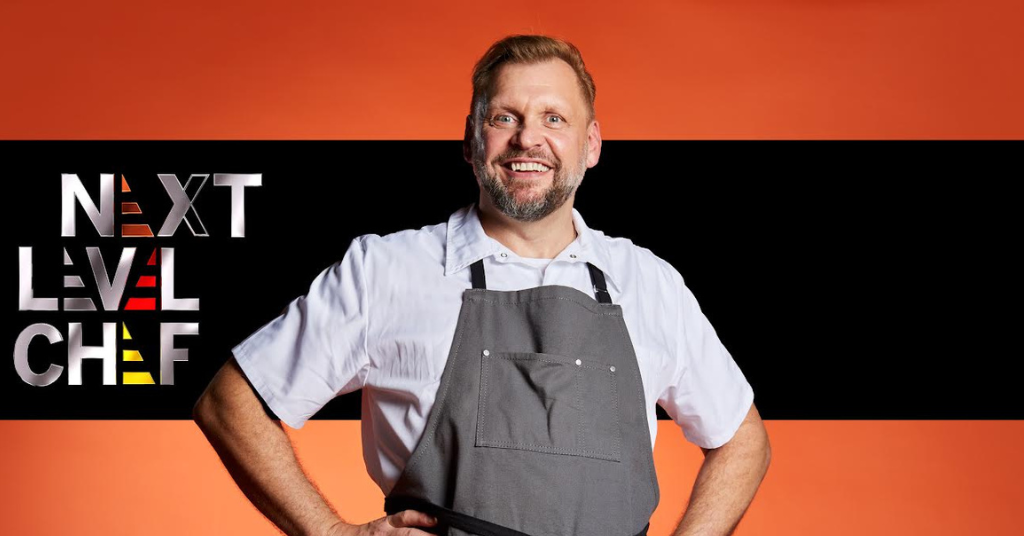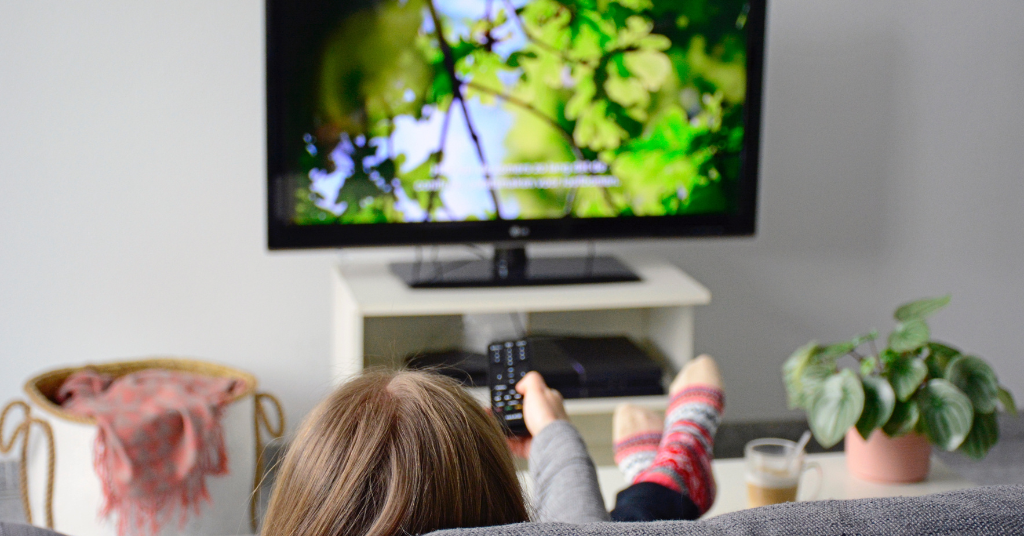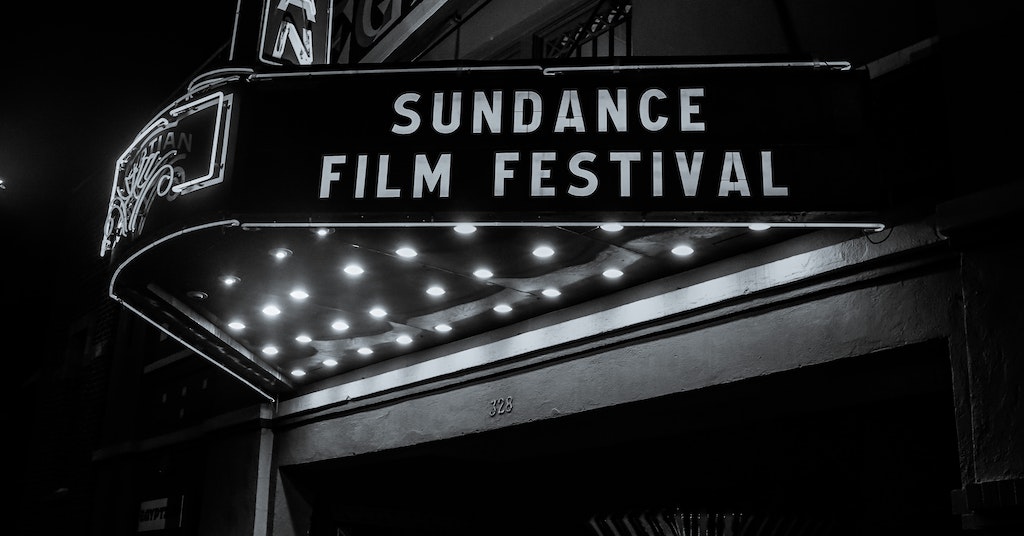
Holiday Gift Guide 2020: Gifts for people with hearing loss
November 27, 2020
Healthcare providers and accessible communication
December 2, 2020Accessibility and visibility for people with disabilities in Hollywood

Recently, the Academy of Motion Picture Arts and Sciences (AMPAS) announced a new initiative to promote diversity and inclusion in motion pictures. Its intention is to expand opportunities for, among others, people with disabilities – both on screen and behind the scenes.
To begin to address those issues, and to celebrate the passage of the Americans with Disabilities Act, which was passed 30 years ago, the Academy produced a virtual program called “Accessibility and Visibility: Breaking Down the Barriers for People with Disabilities in Media.”
In this article, we address the virtual program, with key takeaways from the panel.
Accessible Virtual Program
The almost hour-long virtual program addressing accessibility and visibility for people with disabilities in Hollywood featured three panels. The panelists included nine highly successful professionals with disabilities – of which one was deaf. The collective wisdom of the panelists from their work and lives offered important information and inspiration for anyone with a disability.
The introduction and hosting duties were handled by Academy Award-winning actresses Whoopie Goldberg and Marlee Matlin.
Read more: Marlee Matlin and the stigmas of hearing loss
For those listening to the program with visual impairments, Goldberg and Matlin first described their physical appearance, what they were wearing, and their setting. Each of the nine panelists did the same. They also identified their specific disability.
An ASL interpreter, positioned in the upper right-hand corner of the screen, introduced herself in the same manner as the others. CART was also available for people with hearing loss.
Authentic Representation: Why it Matters and How Far We Have Come
The first panel consisted of Danny Woodburn, an actor and comedian who has dwarfism, Maysoon Zayid, an actor and one of the first female Muslim comedians, who has cerebral palsy, and Eryn Brown, a talent manager with undiagnosed muscular myopathy.
Read more: Oscars to reflect more diversity and inclusion
Key Takeaways and Comments
Authentic representation of disabilities can be traced back to the silent era when it was more prevalent. Today, it is a rarity. Though characters with disabilities are now seen in films, TV and on stage, few are portrayed by themselves or by disabled actors.
One in five Americans has a disability and is part of the largest minority group. Despite this, just two percent of the images we see on screen have a disability and 96 percent of those portrayals are by able-bodied performers.
“…just two percent of the images we see on screen have a disability and 96 percent of those portrayals are by able-bodied performers.”
The panelists described their own experience in Holywood, as well as how they hope to see accessibility change in the future.
Maysoon: “The images of disabled people we see are so infantilized, kind of inspiration porn. The message being sent to kids is that they do not belong in that world and it adds to the stigma of visible and invisible disabilities. That stigma is so strong that even celebrities are reluctant to reveal that they are part of the disabled community. Authentic representation is important because people with disabilities continue to face bullying, violence and discrimination. Positive imagery can help reduce that.“
Danny: “Growing up in the ‘70s, my disability was usually played for pathos as the sad little man or the poor little man or even the devious little man. There are still few positive images for little people. Starting out as a comedian, I was told to stick with short jokes.”
Maysoon: “For the most part, the disabled get three storylines. You can love me and feel sorry for me because I am disabled, you can heal me because you found a cure, or you can let me die because you can’t heal/fix me.”
Eryn: “I have never seen a person with my disability on TV or in a film until I watched a movie done by one of my filmmaking clients that had a disabled person go about their daily life – nothing super special – just a real disabled person living a real life.”
Accommodations in Hollywood
Eryn: “It’s hard for the disabled to ask for accommodations on a movie set. No one wants to be a burden or cause a delay because of something that you need. You don’t want to appear high maintenance. That said, getting accommodations should not be your job. It should be part of your contract. We need the unions to demand those accommodations. Ultimately, it’s in everyone’s best interest to be accommodating.”
Opportunity in Hollywood
Danny: “There is no lack of talented people who are disabled but there is a persistent lack of opportunity. We still have an uphill battle because even with the interest in diversity, the disabled have not been part of that larger discussion.”
Eryn: “Despite my reputation in the industry, no filmmaker has ever sought out my advice.”
Looking Ahead
Maysoon: “As an actress, I still feel alone when I walk into the studio. Nothing will change until stars refuse to play disabled characters.”
Danny: “In the past five years, the trends have been much more positive than in the past 20 years. There still needs to be a disruption of some kind and much more discourse about disability in the arts. People also need to understand that those of us who made it had to go an extra mile just to showcase what we can do. Companies need to realize that what is good for the disabled is good for business.”
Eryn: “I’d like to see a cultural awakening because disability hits every group. At any moment anyone can become disabled. We have to dismantle the way society sees us and get away from the idea that we are the problem. People are opening up about issues of color and sexual identity but what about someone in a wheelchair? We need more three-dimensional stories about the disabled and their lives – their real lives. We also have to get over the fear of asking for what we need.”
Maysoon: “I suggest that two disabled people host the next Academy Awards show.”
Behind the Camera: Why Inclusion Benefits Us All
Panel 2 of the program consisted of Jenni Gold, a filmmaker with spinal muscular atrophy, Jim Lebrecht, a filmmaker with spina bifida, and Kaitlyn Yang, a visual effects supervisor who has spinal muscular atrophy.
Key Takeaways and Comments
Filmmakers are looking to tap a treasure trove of stories and performers that have not been heard before.
Jenni: “When I see a film now, I give it the ‘gold’ test. Are there two women in a movie that talk together about anything other than men? Most films don’t pass that test. Now, I look for a disabled person in a fictional story who is three-dimensional and not just defined by his or her disability. I haven’t seen one. So, here’s the question. If these three-dimensional characters don’t even exist in fictional movies, why would people think they exist in real life? And more importantly, when you go out to find a job as a disabled person, how do you succeed to a director or supervisor who has never experienced a three-dimensional disabled person?”
Kaitlyn: “We are too often in the conversation because of what makes us different rather than where we connect and are similar. We are still being brought to the table to talk about our diversity rather than our skills – skills that we spent years perfecting and working at.”
Opportunity
Jenni: “Believe it or not, having a disability is an advantage as a director as, for a change, I get to tell people what to do.”
Kaitlyn: “Interestingly, because those with disabilities have learned to make adaptations their whole lives, those skills can transfer to good storytelling and movie making where creativity comes in.”
Kaitlyn: “Since the coronavirus arrived, video conferencing has been a boon to the disabled. It eliminates the discomfort that we have in attending meetings in the flesh and has put us on equal footing with our colleagues. In a Zoom meeting we start with the idea that there is no wheelchair in the room. At least for that time, the wheelchair doesn’t matter. Now let’s see what happens when you meet face to face.”
Looking Ahead
Jim: “If everyone in the industry identified as they really are, things would change. We would all admit that we have something going on and that the disabled are everywhere. It’s the industry’s responsibility to not only hire people in front of and behind the scenes, but to produce media embracing that we are members of society, are capable, and can add so much. Change will come from this conversation when producers hire us and ask us what they can do to make our work successful.
For young people with disabilities seeking careers in filmmaking, find your community – other people, companies, businesses, and/or websites connected to those who are doing what you want to do. They are out there.”
Jenni: “We and others with disabilities – today and in the recent past – have laid the groundwork and kids today don’t have to fight as hard as we did to take the next step.”
Fresh Voices: Hollywood’s Untapped Talent and Unlimited Potential
Panel 3 consisted of Jorge Gutierrez, an animation director on the autism spectrum, Millicent Simmonds, an actor who is deaf, and Zack Gottsagen, actor and star of ‘The Peanut Butter Falcon,” who has Down’s Syndrome.
Key Takeaways and Comments
Millicent: “I’d like to see more stories about deaf icons. So little is known about their back stories. What was their life like and how did they overcome their disability?”
“I’d like to see more stories about deaf icons.”
Jorge: “There’s been an over emphasis on the disability as the only challenge. But real people – yes, even disabled people – have lives and flaws and we need to see them too.”
Millicent: “I’m always surprised when people are surprised to know that I’m deaf in real life. It’s disappointing that they automatically assume that a deaf actor had to be played by a hearing actor.”
Read more: Film “A Quiet Place” stars Deaf actress Millicent Simmonds
Opportunity
Jorge: “My ‘special condition’ has helped me to be focused. I call it my superpower. It has helped me in my work in animation. I was always told that my autism was my weakness when it turned out to be my strength. Animation has given me license to be creative with characters. I believe that writers and directors have a responsibility to show people with disabilities as they are. This is especially important when creating work for children, to give them the whole story.
My dream is to represent disabled characters as normal. I was not diagnosed until I was 40 years old. The people representing me told me that I should not say anything because others [would] think I would be difficult to work with. My son has been diagnosed with the same condition that I have. I am not going to hide myself publicly it as an example to him.”
Looking Ahead
Millicent: “It’s the disabled that are changing peoples’ perspectives, breaking through barriers and boundaries. When people who are deaf see me on screen, it inspires their confidence to do what they want. We need to hear more from them. With all their knowledge, experience and ability, let’s make more opportunities for people with disabilities to tell their own stories, more character studies – not just sympathy pieces about disabled characters that have less than others – but stories about hope. More movies that educate audiences about disability, help them to listen, learn and interact. More movies about disabled people who actually reach their dreams.”
Jorge: “I have connected with an autism community and am adding autistic characters in my animations. I would like to see more disabled characters in genre movies like Westerns because it reflects the whole world.”
Zack: “I’d like to see more romantic stories, comedies, a disabled superhero.”
Millicent: “To young people – I am only 17 myself – believe in yourself, take acting classes, write your own stories and show us who you are.”
Zack: “Follow your heart, follow your dream, and one day they will go big.”
Read more: 5 deaf actors to watch on Netflix right now



